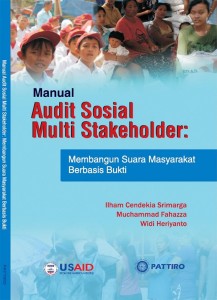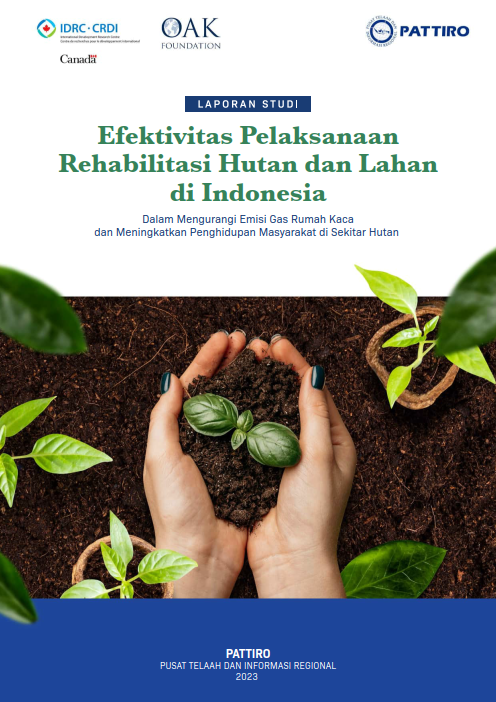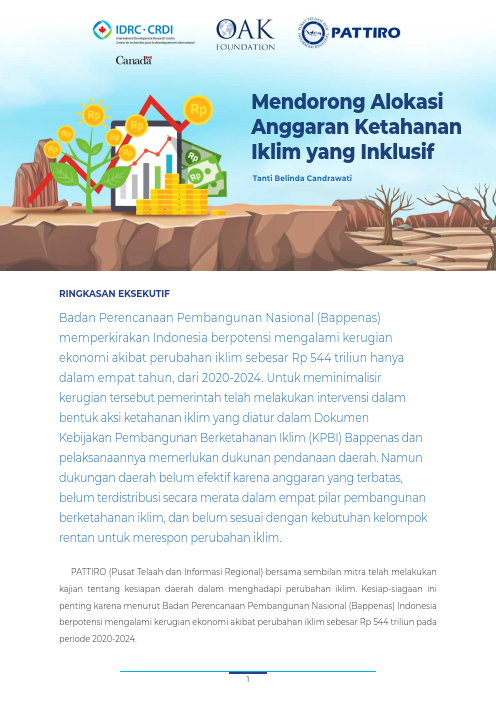 Social audit is a community monitoring tool on government performance created in the Strengthening Integrity and Accountability – 2 (SIAP-2) program conducted by PATTIRO with funding from USAID (United States Agency for International Development). The idea of a social audit started from research conducted by the program team and continued to policy formulation. From that it is understood that social audit activities are important to be carried out in each region program to assess the actual conditions between the availability of regulations and conditions in the field. This assessment is then used as material for formulating policy proposals to the government. This social audit is one of the assessment instruments that is expected to help the government to evaluate its program. In addition, this social audit is also expected to be used as a tool to measure accountability and integrity in the implementation of government programs. In this case, the social audit assesses almost all aspects and stages in the program cycle and mechanism by involving relevant stakeholders starting from the implementation level in the regions.
Social audit is a community monitoring tool on government performance created in the Strengthening Integrity and Accountability – 2 (SIAP-2) program conducted by PATTIRO with funding from USAID (United States Agency for International Development). The idea of a social audit started from research conducted by the program team and continued to policy formulation. From that it is understood that social audit activities are important to be carried out in each region program to assess the actual conditions between the availability of regulations and conditions in the field. This assessment is then used as material for formulating policy proposals to the government. This social audit is one of the assessment instruments that is expected to help the government to evaluate its program. In addition, this social audit is also expected to be used as a tool to measure accountability and integrity in the implementation of government programs. In this case, the social audit assesses almost all aspects and stages in the program cycle and mechanism by involving relevant stakeholders starting from the implementation level in the regions.
The social audit method developed and used by PATTIRO is different from the social audit that already existed. If so far the social audit seems to be more pretense to seek findings as material for defending and advocating for one party, the social audit used by PATTIRO was developed with a different perspective and method. For PATTIRO, the findings of the social audit will be used to encourage stakeholders to jointly seek improvements to public services, either at the implementation, system or mechanism level. The hope is that if the same program will be continued, the implementation of the program will be better. This is because the social audit developed by PATTIRO will also identify or formulate solutions and recommendations for system improvement, both in the form of policy formulation at the national level and implementation mechanisms at the regional level.
Another difference is in the method, which is carried out through a forum in the form of a Focus Group Discussion (FGD) by involving all stakeholders in the implementation of the program, both implementers, beneficiaries, monitors and supervisors, and other actors who have an interest or concern for program implementation. In this FGD, stakeholders will be facilitated to evaluate several aspects of program implementation, namely transfer, distribution, reporting and complaint mechanism. The assessment will be carried out by giving a score accompanied by an explanation of the reasons or arguments for selecting the score. With this combination of scoring and argumentation methods, social audits are expected to be able to identify facts and data in their entirety, both quantitatively and qualitatively.




